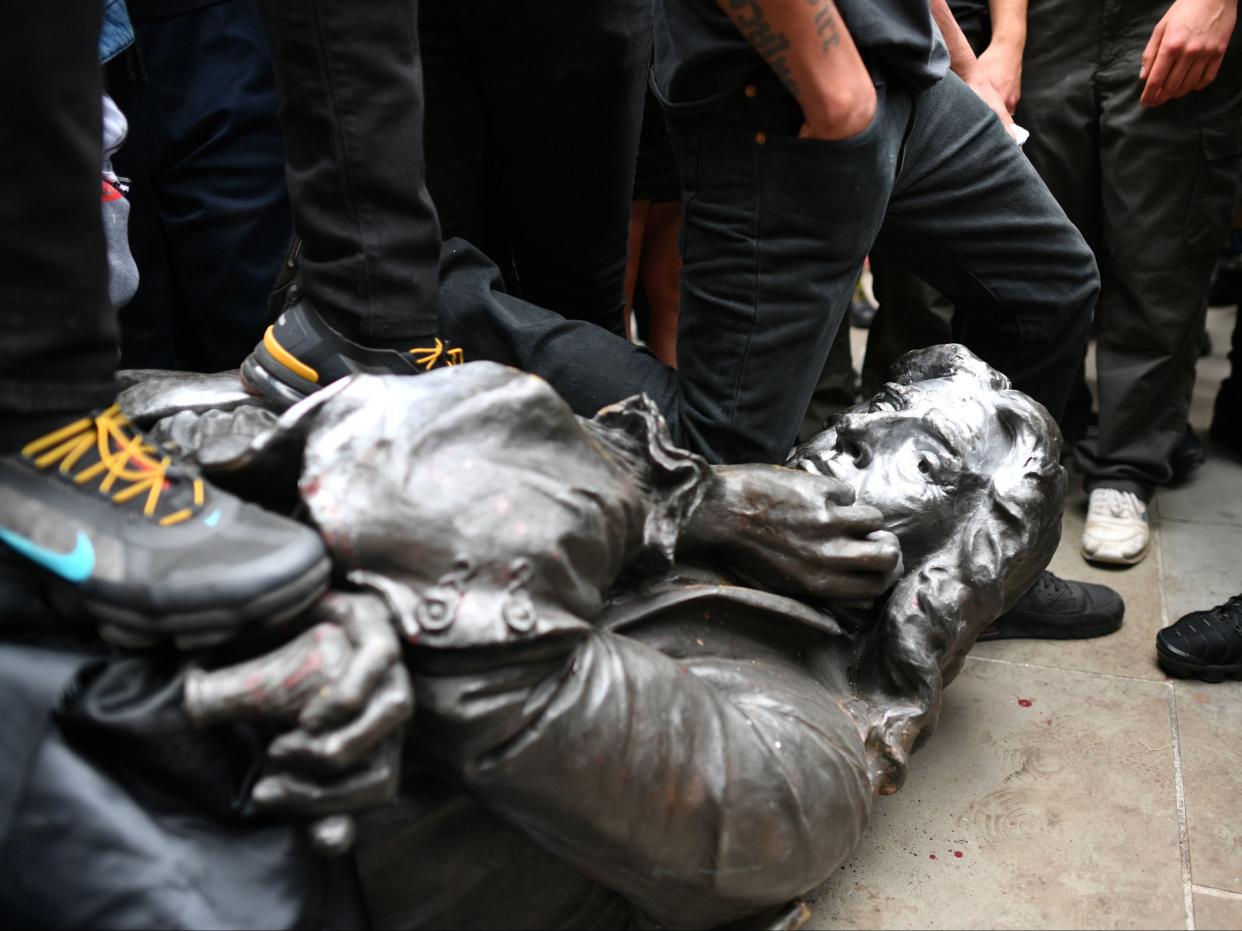Judges to weigh up arguments about historical figures when jailing statue vandals under proposed law

Judges will have to weigh up arguments about historical figures when sentencing people for vandalising statues under proposed law.
A bill backed by the government means that sentences of up to 10 years’ imprisonment will be decided over the “emotional and community impact” of damaging memorials, rather than the financial cost of repairs.
Statues of historical figures who were involved in the slave trade or accused of racism would be covered by the law, which includes any structure or location with a “commemorative purpose”.
It was drawn up after Black Lives Matter protesters toppled the Edward Colston statue in Bristol and graffiti calling Sir Winston Churchill racist was daubed on a London plinth.
Provisions in the Police, Crime, Sentencing and Courts Bill mean that previous limits on prison sentences and fines for criminal damage costing under £5,000 would be lifted for memorials.
In a joint letter to Labour politicians, the home secretary and justice secretary said: “We are giving judges greater discretion as to how they sentence such offenders taking into account emotional and community impact.”
It is not clear how that impact would be assessed, particularly in cases where public opinion about memorials to controversial historical figures is divided.
If some people are upset by vandalism to a statue, but others view the statue to be more upsetting in itself, it is understood that judges will have to weigh up opposing arguments at the sentencing stage.
A government fact sheet on the proposals on the did not make specific reference to Black Lives Matter protests, but stated: “There has been widespread upset about the damage and desecration of memorials with a recent spate over the summer of 2020. It has long been considered that the law is not sufficiently robust in this area.
“Incidences of damage and desecration of memorials are typically of low monetary value, but very often carry a high sentimental and emotional impact.”
However, a government spokesperson said the requirement for judges to weigh up arguments about historical figures when sentencing people for vandalism was “not new”.
“Judges already consider the emotional or community impact of a crime when sentencing,” they added.
In June, violence broke out in Westminster as thousands of people protested in “defence” of statues, including a man who urinated next to a memorial to a police officer murdered in a terror attack.
Following the targeting of Confederate statues during widespread Black Lives Matter protests in the US, former president Donald Trump issued an executive order to “protect monuments”.
The June 2020 document said that anyone who “destroys, damages, vandalises, or desecrates a monument, memorial, or statue within the United States” must be “prosecuted to the fullest extent”. Joe Biden revoked the order on Friday.
The desecration of war memorials was previously the subject of a proposed British law in 2010, when a group of MPs backed a private members’ bill to increase punishments for damage to statues that “commemorate those involved in or affected by a conflict or war”.
The current proposals go much further, to encompass “a building or other structure, or any other thing, erected or installed on land, or a garden or any other thing planted or grown on land, which has a commemorative purpose”.
In the joint letter, Priti Patel said the law would cover “memorials with low monetary but high sentimental value, for example gravestones, war memorials, roadside tributes to people killed in car crashes and the memorials to people who have been murdered, such as the Stephen Lawrence memorial”.
The proposals are among a raft of legal changes contained within the Police, Crime, Sentencing and Courts Bill, including controversial new protest powers.
The law is returning to parliament on Tuesday for scrutiny by a dedicated committee, which will take evidence from senior police officers.
Read More
Labour backs Priti Patel plan to jail protesters for vandalising war memorials
London protests: Demonstrators throw bottles and run into police as they 'defend' memorials
Edward Colston: The other controversial statues in UK which have faced calls to be pulled down

